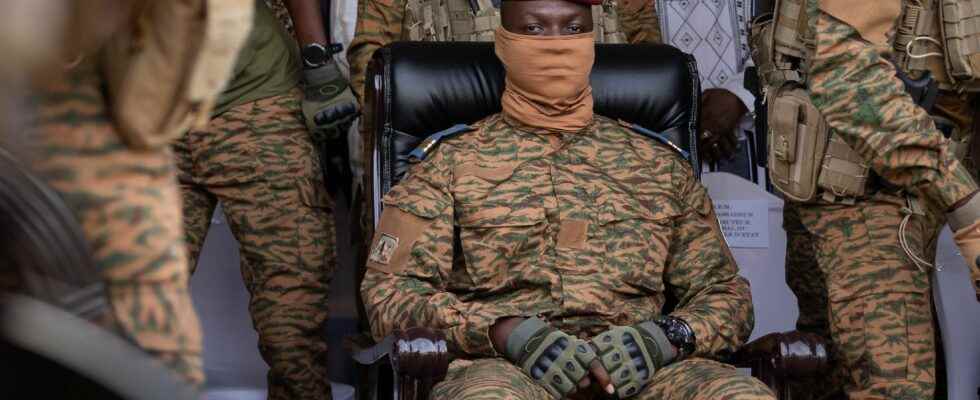At the start of 2023, the “lady of Sochi” is jubilant, hanging on her smartphone, her eyes riveted on her Twitter account. Pan-African activist Nathalie Yamb, so nicknamed for her acquaintances with the Kremlin, has just strummed a wish for the new year: the “dismissal of the French ambassador” to Burkina Faso and the “departure of the French operation Saber” (400 special forces men) of the country. The serial tweeter knows it: this scenario is not impossible. A few days earlier, the Quai d’Orsay received a letter from Ouagadougou: the transitional authorities resulting from the coup of September 30, 2022 – the second in 9 months – demand the replacement of the ambassador Luc Hallade there. The diplomat was in trouble with the previous putschists for having dared to note their “lack of results” in the face of terrorism, which leaves 40% of the territory out of state control. He is no longer popular with the new team.
The sequel seems already written, as the first episodes recall another divorce, between Paris and Bamako. On January 31, 2022, the Malian junta, newly allied with Wagner’s Russian mercenaries, gave the French ambassador Joël Meyer 72 hours to pack up. The beginning of the end for the soldiers of the Barkhane anti-terrorist force, pushed towards the exit.
“The Malian scenario seems to be repeating itself in Burkina Faso, confirms Jean-Hervé Jezequel, director of the Sahel project at the International Crisis Group. After the suspension of RFI, the arrest of two French people accused of espionage, comes this pressure on the ‘ambassador…’ Ouagadougou and Bamako do not hide their affinities. Three days after his hold-up on the Burkinabè presidency, Captain Ibrahim Traoré flew to the Malian capital.
In Paris, this first signal was already fearing the worst. The Elysée is wary of this young red beret of 35 who did not hesitate, the day of his coup, to incriminate the French army, accused of having sheltered in its base of Kamboisin (in the suburbs of Ouagadougou ) Colonel Damiba, short-lived president just overthrown. The case, fabricated from scratch, triggers the fury of demonstrators: Molotov cocktails on the French Embassy, ransacked French Institutes…
Anti-French degagism
At the top of the Burkinabe state, we know how much this anti-French rhetoric pays off. Just look at the popularity of Mali’s trellis master, Assimi Goïta, who has made it his business. “A new generation is emerging, which refuses the military presence of the former colonial power, analyzes Jean-Hervé Jezequel. Firstly because France did not know how to ‘solve the colonial era’, especially in Burkina Faso where it supported the authoritarian regime of Blaise Compaoré and even exfiltrated it after its overthrow in 2014. Many believe that France has not been on the right side of history. having succeeded in stemming the insecurity.”
It didn’t take much to turn this bitterness into an anti-French degagism. The emissaries of the Kremlin, ready for anything in its war against the “collective West”, are working on it. At the beginning of December, the Burkinabe Prime Minister was invited to Moscow for a week. “We would like Russia to take its rightful place as a great nation in our country,” he said in an interview. From there to invite Wagner’s mercenaries? The pact is already concluded, according to the Ghanaian president, who affirmed it in mid-December. At this stage, no contract has been confirmed but the putschists could be tempted by these lawless paramilitaries, quick to play the praetorian guards.
This time, the French executive wants to anticipate. Defense Minister Sébastien Lecornu spoke in November of the possible end of Operation Saber in Burkina Faso, a key device for French intelligence in the Sahel. “Saber becomes a target for anti-French mobilizations, slips an observer. Paris may think that there are only blows to take.”
Burkina Faso would be the third African country left by the French military since 2022, after Mali and the Central African Republic, where a handful of soldiers participated until December in UN and European Union missions. “We now obey a logic of partnership with the countries of the Sahel, insists a senior officer. Our presence will only respond to the request of the States.” So far, the candidates do not jostle.
